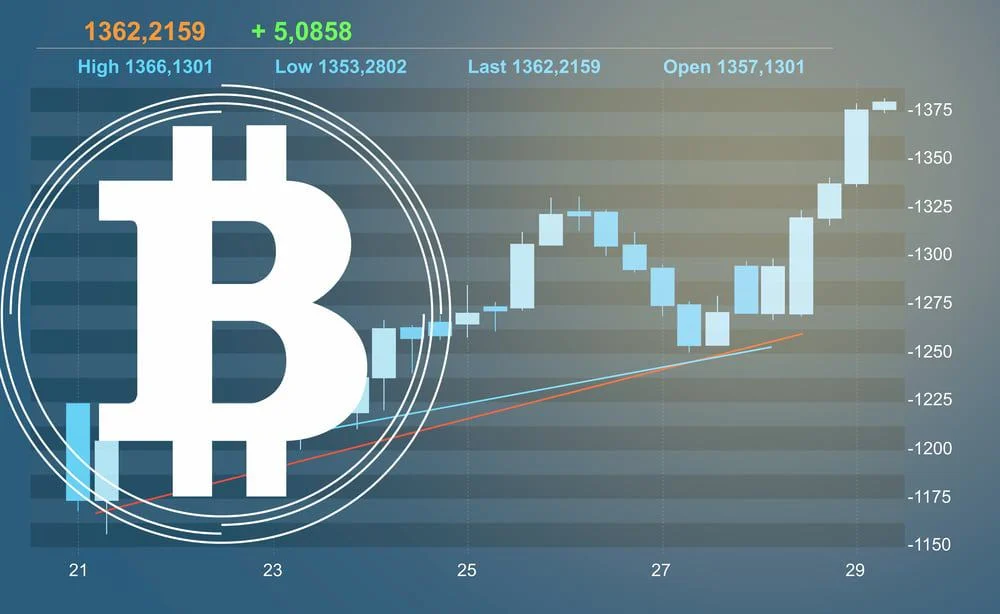Bitcoin investment offers unparalleled opportunities for savvy investors seeking high returns and diversification. With its meteoric rise from obscurity to prominence, Bitcoin has reshaped the financial landscape, enticing individuals to explore its potential. In this comprehensive guide, we delve into the intricacies of Bitcoin investment, providing valuable insights and expert strategies to maximize returns and mitigate risks.

From understanding market trends to navigating regulatory challenges, we equip you with the knowledge and tools needed to thrive in the dynamic world of cryptocurrency investment. Embark on your journey towards financial freedom with strategic Bitcoin investment today.
What if you could turn a small investment of $100 into a staggering $1.54 billion in just over a decade? This is not a fantasy story but the actual outcome of bitcoin’s phenomenal rise in the financial world. If you invested $100 in bitcoin in 2010, when its price was only $0.003, the return on that investment would have been incredible. Read on to find out more.
If You Invested $100 in Bitcoin in 2010: How Much Would You Have Today?
Bitcoin, in its infancy back in 2010, was a new and largely obscure digital currency. For those who recognized its potential and invested just $100 at the start of the year, they would have obtained roughly 33,333 bitcoins. Given bitcoin’s price as of Jan. 11, 2024, at $46,275.39, this investment would now be worth a whopping $1.54 billion.
This example shows the remarkable growth of bitcoin over the years. An investment as tiny as $100 in 2010, widely viewed as a gamble at the time, would now be one of the most profitable investments in modern history.
If You Invested $100 in Bitcoin 10 Years Ago
If you invested $100 in bitcoin at the start of 2014 when its price was about $805 per bitcoin, you would have purchased roughly 0.1242 bitcoins. As of Jan. 11, 2024, with the price of bitcoin at $46,275.39, your investment would be worth around $5,747.40.

This impressive growth, while not as spectacular as the early days of bitcoin, still shows the potential for huge returns on cryptocurrency investments over a decade. Investing in bitcoin, even just 10 years ago, would have produced amazing results, highlighting the continued importance and attractiveness of cryptocurrencies as a modern investment option.
Comparison With Traditional Investments
Comparing a $100 investment in bitcoin with the same amount in the S&P 500, initiated in 2010, reveals a huge difference in returns. The S&P 500, a key indicator for stock market performance, has historically offered an annualized return of about 10%, including dividends. This figure is based on data since 1971, as examined by Nobel Prize-winning economist Robert Shiller.
In 2010, investing $100 in the S&P 500 would have led to steady growth, averaging 10% annually. However, annualized returns mean that some years may have higher gains or losses. By 2024, with a consistent 10% annual growth, this investment would have grown to roughly $385.54. This growth, though noteworthy, does not match the extraordinary rise of bitcoin in the same timeframe.
This comparison shows bitcoin’s high-risk, high-reward nature, contrasting with the more stable, but less explosive, growth of traditional stock market investments. Bitcoin’s potential for huge gains is clear, but it’s also accompanied by significant volatility and risk, making it a more speculative choice for investors.
The Risks Involved
Acknowledging the volatile nature of bitcoin is crucial. Its price has experienced dramatic highs and lows over the years, emphasizing the high-risk nature of investing in cryptocurrencies. While the potential for huge gains is tempting, it’s also balanced by the possibility of equally huge losses.
The Pros and Cons of Investing in Bitcoin
Bitcoin is a digital currency that operates on a decentralized network of computers, without the need for a central authority or intermediary. Bitcoin has attracted a lot of attention from investors, as its price has soared from less than a dollar in 2009 to over $50,000 in 2021. However, investing in bitcoin is not without risks, as the cryptocurrency is subject to high volatility, regulatory uncertainty, and security issues. In this article, we will explore the advantages and disadvantages of investing in bitcoin, and what factors you should consider before making a decision.
The Advantages of Bitcoin Investment
One of the main benefits of investing in bitcoin is its potential for high returns. Bitcoin has outperformed most traditional assets in the past decade, delivering a staggering return of over 15 million percent since its inception. Bitcoin has also proven to be a hedge against inflation and currency devaluation, as its supply is limited to 21 million coins and cannot be manipulated by governments or central banks.

Moreover, bitcoin offers diversification benefits, as it has a low correlation with other asset classes, such as stocks, bonds, and gold.
Another advantage of investing in bitcoin is its innovation and adaptability. Bitcoin is the first and most popular cryptocurrency, but it is not the only one. There are thousands of other cryptocurrencies, or altcoins, that offer different features, functionalities, and use cases. Some of these altcoins are built on top of the bitcoin network, such as the Lightning Network, which enables faster and cheaper transactions.
Others are based on different protocols, such as Ethereum, which allows for smart contracts and decentralized applications. These innovations and adaptations make the cryptocurrency space more dynamic and exciting, and offer more opportunities for investors.
The Disadvantages of Bitcoin Investment
One of the main drawbacks of investing in bitcoin is its volatility. Bitcoin is known for its wild price swings, which can be influenced by various factors, such as market sentiment, supply and demand, news events, hacks, regulations, and technical issues. For instance, in 2017, bitcoin reached an all-time high of nearly $20,000, only to drop by 80% in the following year.
In 2020, bitcoin plunged by 50% in a single day, due to the coronavirus pandemic. In 2021, bitcoin reached a new record of over $60,000, but then fell by 25% in a matter of weeks. This volatility can make investing in bitcoin very risky, as it can result in significant losses or missed opportunities.
Another disadvantage of investing in bitcoin is its regulatory uncertainty. Bitcoin operates in a legal gray area, as different countries have different laws and regulations regarding cryptocurrencies. Some countries, such as Japan, Switzerland, and Singapore, have adopted a friendly and supportive stance towards bitcoin, recognizing it as a legal tender, a commodity, or an asset.
Other countries, such as China, India, and Russia, have taken a hostile and restrictive approach, banning or limiting the use, trade, or mining of bitcoin. These regulatory differences can create confusion and challenges for investors, as they can affect the accessibility, liquidity, and legality of bitcoin.

A third disadvantage of investing in bitcoin is its security issues. Bitcoin transactions are irreversible, meaning that once you send or receive bitcoin, you cannot undo or cancel it. This makes bitcoin vulnerable to human errors, such as losing your private keys, sending bitcoin to the wrong address, or falling victim to phishing or scamming.
Bitcoin is also susceptible to cyberattacks, such as hacking, malware, or ransomware, which can compromise your wallet, exchange, or network. For example, in 2014, Mt. Gox, the largest bitcoin exchange at the time, was hacked and lost 850,000 bitcoins, worth about $450 million. In 2019, Binance, one of the leading cryptocurrency exchanges, was hacked and lost 7,000 bitcoins, worth about $40 million. These security issues can cause financial losses, reputational damage, and emotional stress for investors.
Final Take
Bitcoin is a revolutionary invention that has changed the way we think about money and finance. Investing in bitcoin can offer many benefits, such as high returns, inflation hedge, diversification, innovation, and adaptability. However, investing in bitcoin also entails many risks, such as volatility, regulatory uncertainty, and security issues. Therefore, before investing in bitcoin, you should do your own research, understand the pros and cons, and only invest what you can afford to lose.